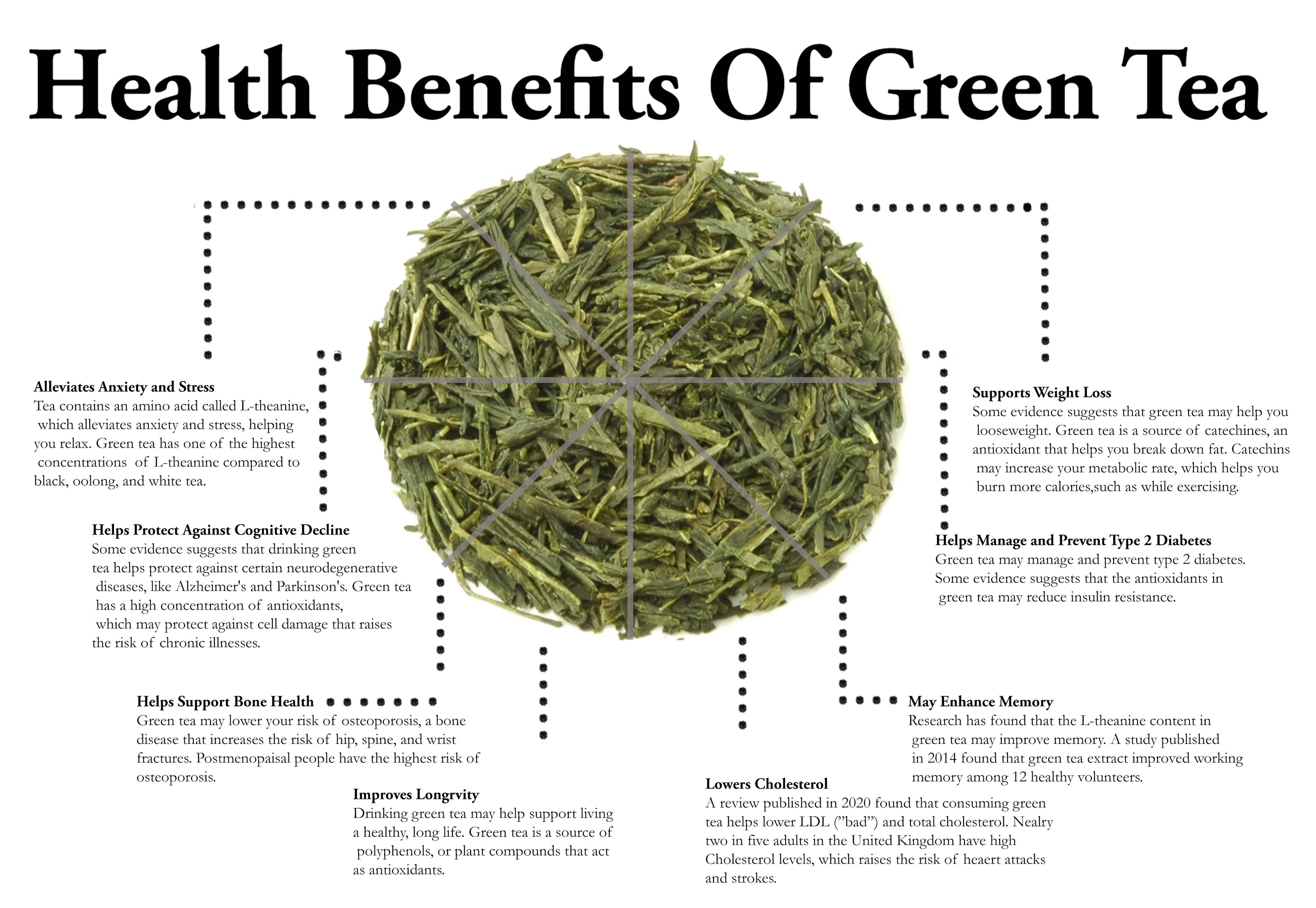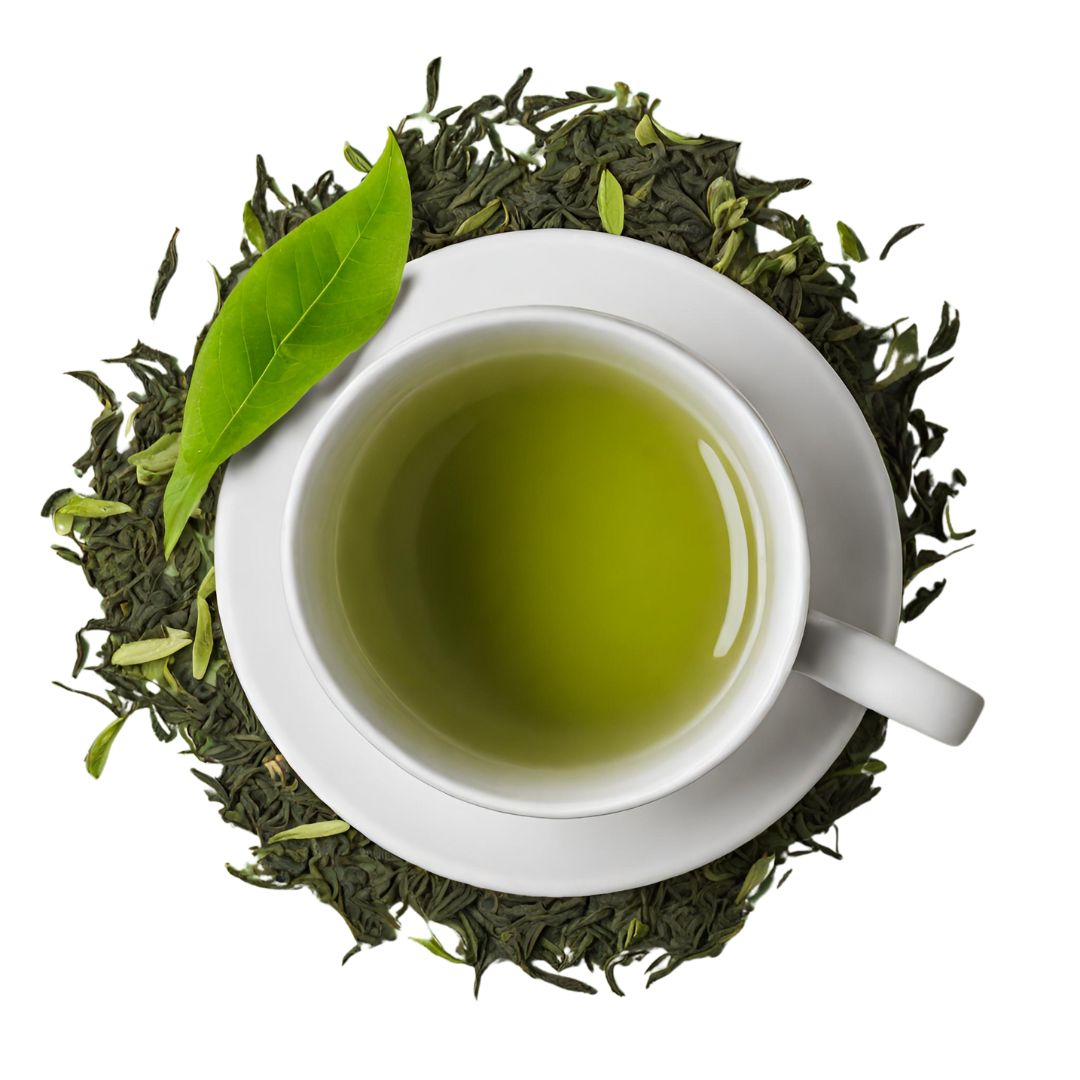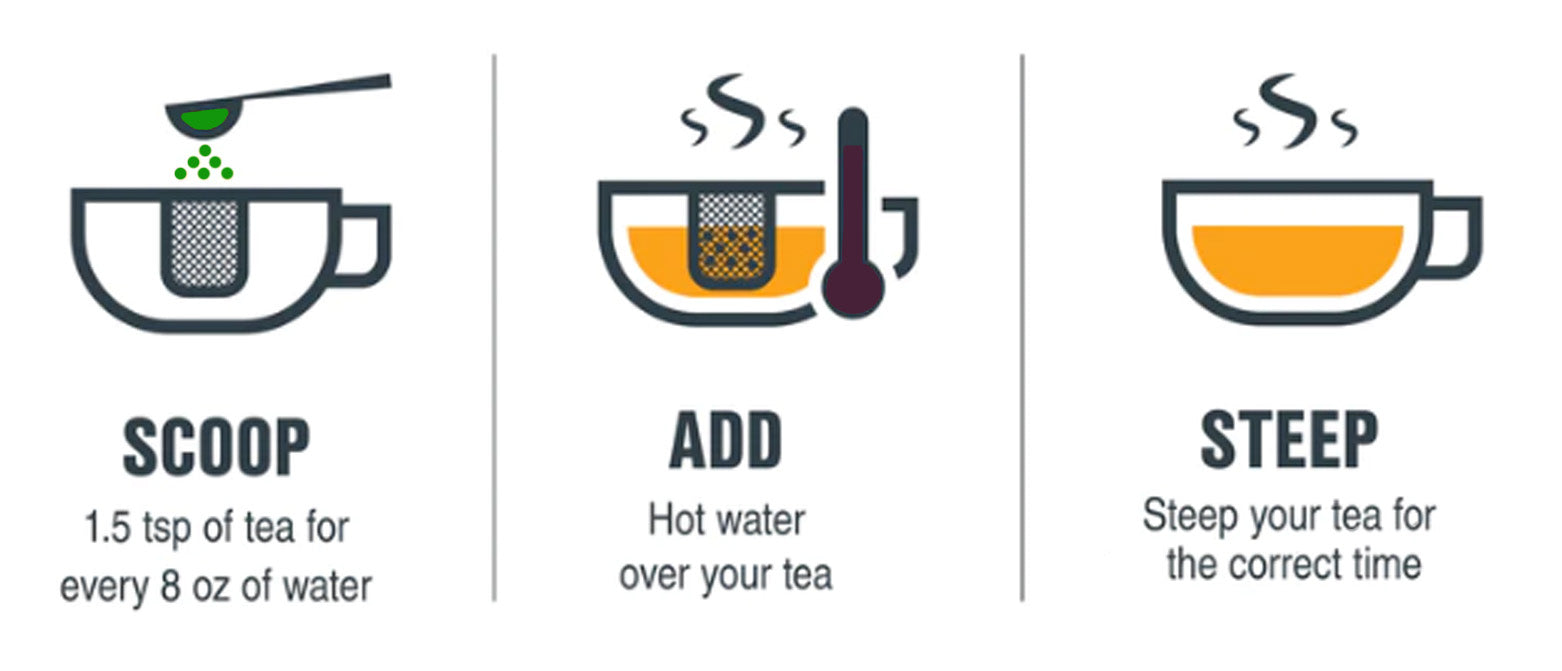Genmaicha
Genmaicha
Couldn't load pickup availability
A famous Japanese green tea that combines steamed green tea leaves with toasted rice for a savoury, nutty and delightful flavour with popcorn notes.
Genmaicha is one of the most unique and distinctive green teas available. Also known as the "People's Tea", Genmaicha was said to be satisfying and filling and so commonly consumed by the poor and those who were hungry or fasting as an appetite suppressant. The addition of toasted rice to green tea leaves also reduced the price of the tea itself, making it more accessible to commoners as well as being delicious and satisfying.
Our Genmaicha is one of the finest versions available using only the finest steamed green tea leaves from Japan and pure toasted rice grains. Some of the grains pop during roasting and resemble popped corn so this tea is also commonly known as "popcorn tea".
The result is this delicious bright golden-yellow infusion with characteristics refreshing green tea flavours and a nutty, savoury, toasted finish and a touch of caramel on the finish.


To Enjoy
Place one to two teaspoons per cup into an infuser, filter or teapot. Allow the water to cool after boiling and infuse for 2-3 minutes. Serve immediately or remove leaves to prevent spoiling.
Origins

Ingredients
Ingredients
Green Tea, Toasted Peeled Rice.
Allergens Note: All products are packed in an environment that contains nuts and other allergens.
Our Sizes Explained
Caddies
Caddies

Standard Caddy
Our bespoke white and lilac caddy is the perfect way to keep your infusion fresh.
Contains enough for approximately 40 cups of happiness.
Refill Pouch
Refill Pouch

The refill carton, available in Standard and Large, is a perfect, environmentally friendly way to replenish your Tea Palace Caddies.
Contains enough for approximately 40 cups (Standard) or 60 cups (Large) of one of our infusions.
Sample Caddy
Sample Caddy

Our small sample size caddy weighs 45g and is the perfect way to try a new infusion or multiple different blends.
It contains enough for approximately 10 cups of goodness.
Share
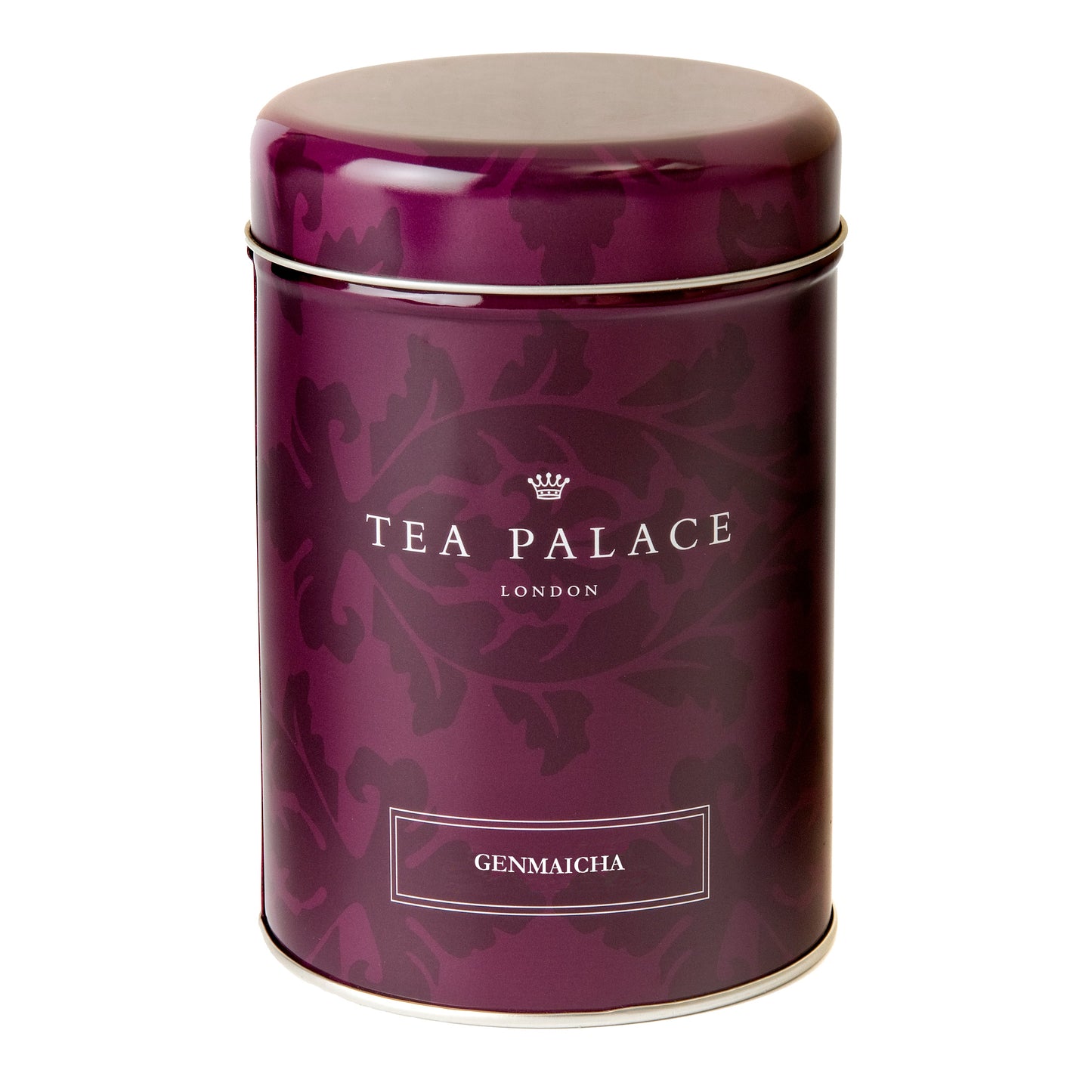
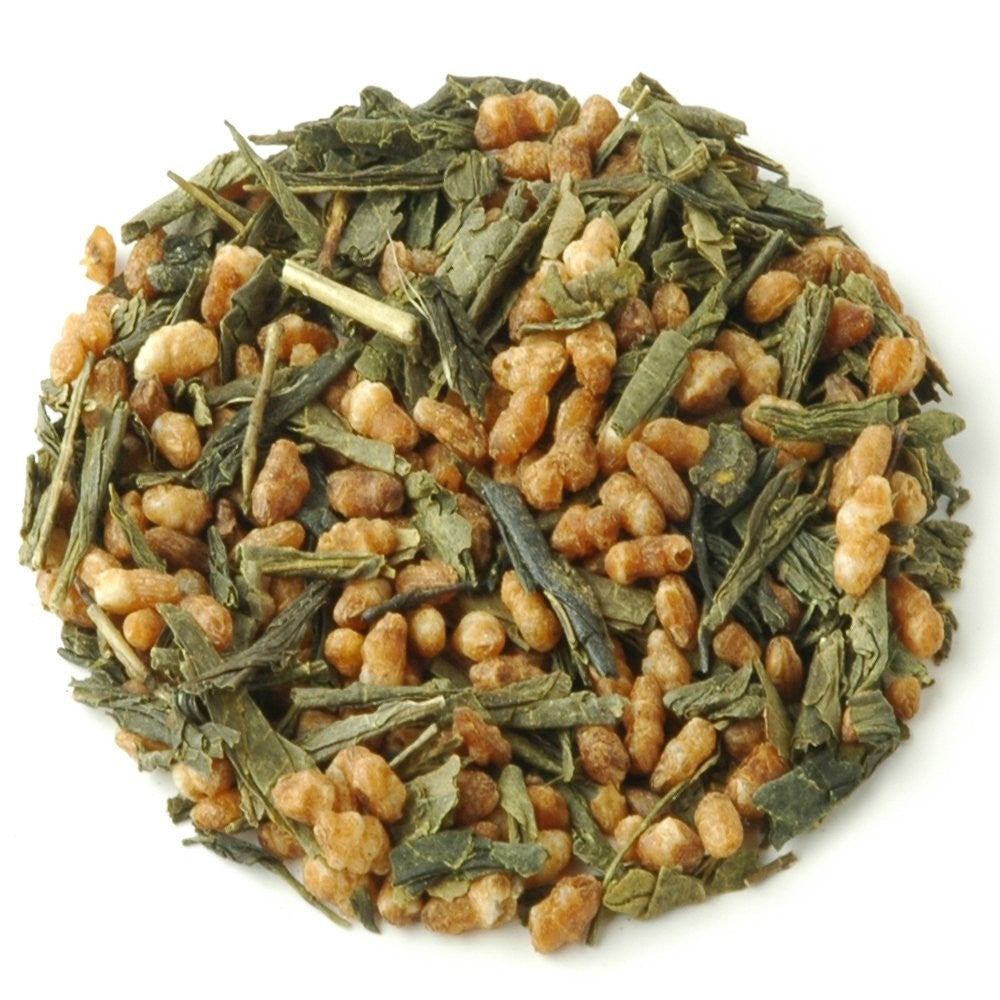
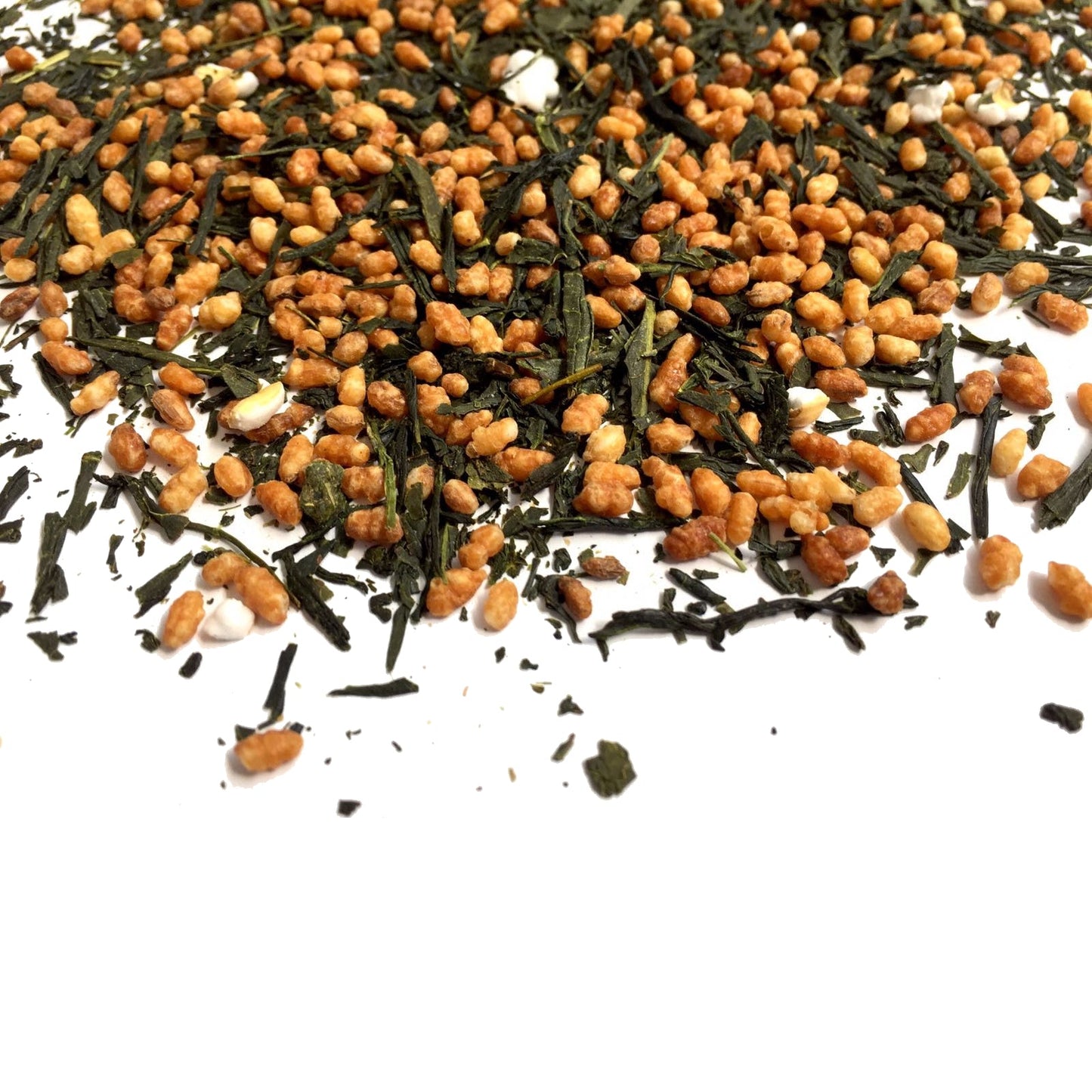


About Genmaicha
Genmaicha is a traditional Japanese green tea that is known for its unique flavor profile, combining green tea leaves with roasted brown rice kernels. This tea has a distinct and toasty taste, making it a popular and comforting choice.
It is made using bancha, a type of Japanese green tea. Bancha is a late-harvest green tea that is known for its milder flavour compared to other green teas like sencha.
The defining characteristic of Genmaicha is the addition of roasted brown rice. The rice kernels are roasted to a light brown colour, imparting a nutty and toasty flavour to the tea. Sometimes, popped rice is also used, giving the tea a popcorn-like aroma.
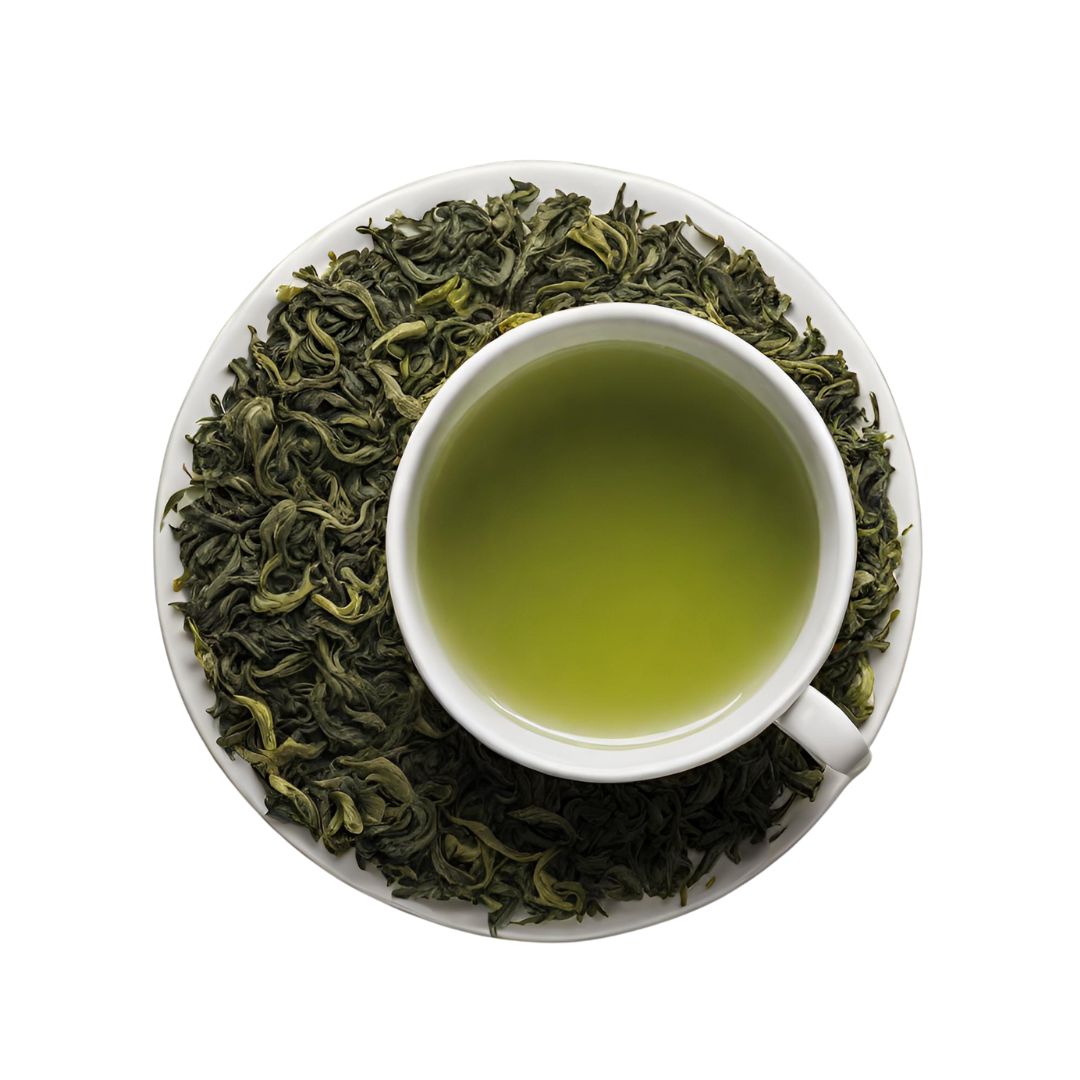
The combination of green tea and roasted brown rice creates a unique flavour profile. Genmaicha has a mild, grassy taste from the green tea, complemented by the nutty, toasty notes from the roasted rice. The result is a well-balanced and comforting cup of tea.
Genmaicha has a distinctive aroma characterized by the roasted scent of the brown rice. The fragrance is warm and inviting, contributing to the overall sensory experience.
Bancha, the green tea base used in Genmaicha, has lower caffeine levels compared to other green teas. This makes Genmaicha a suitable choice for those who are looking for a tea with a moderate caffeine content.
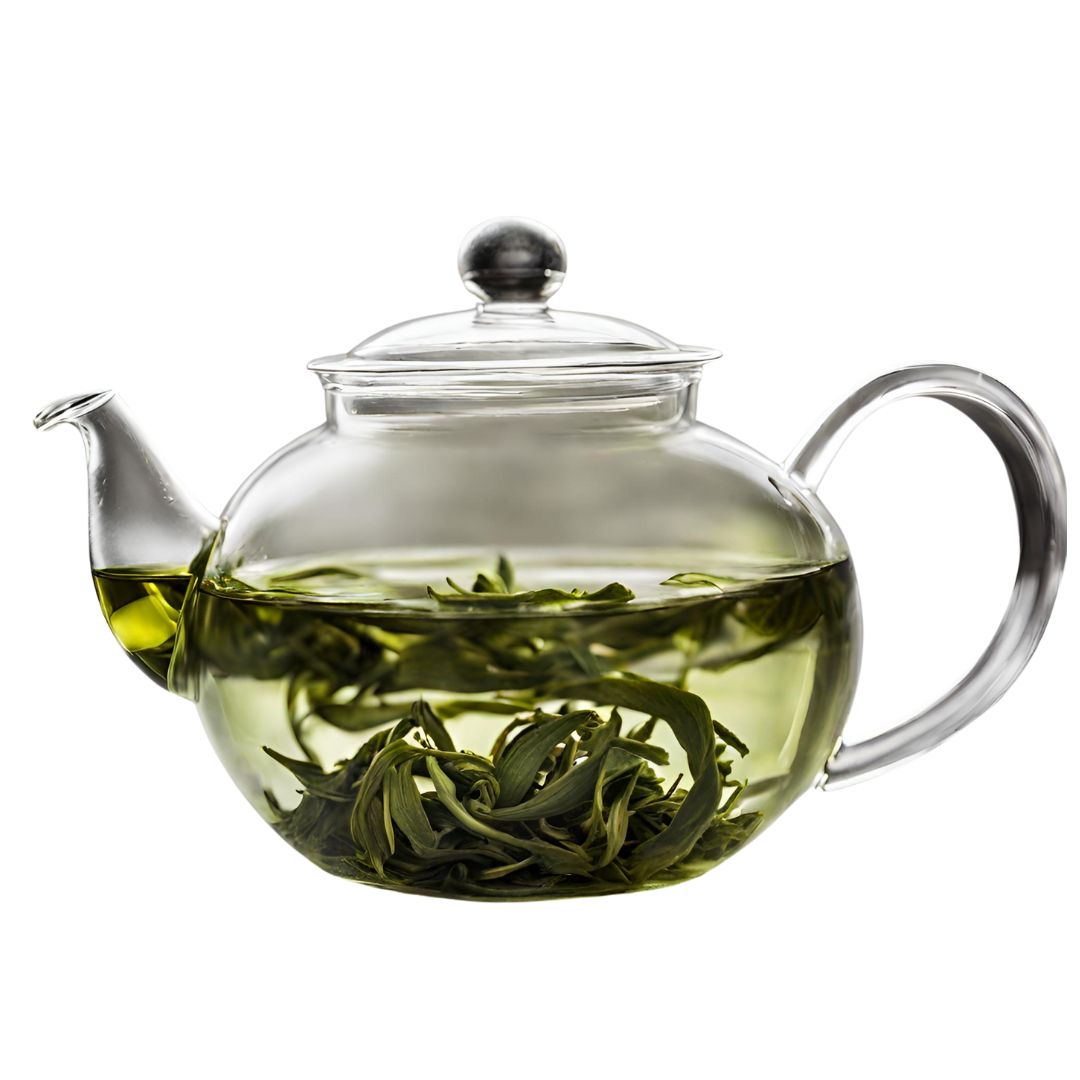
This blend is versatile and can be enjoyed throughout the day. Its approachable flavour profile makes it suitable for both experienced tea drinkers and those new to green tea. It pairs well with a variety of foods and is often served with meals in Japan.
Genmaicha is commonly served hot, but it can also be enjoyed iced. It is often served plain, but some people add a touch of sweetener or enjoy it with a slice of citrus, such as a lemon wedge.
Genmaicha has a long history in Japan and is a popular everyday tea. Its origins are said to trace back to times when tea was a luxury, and adding rice helped to make it more accessible to a broader population.
